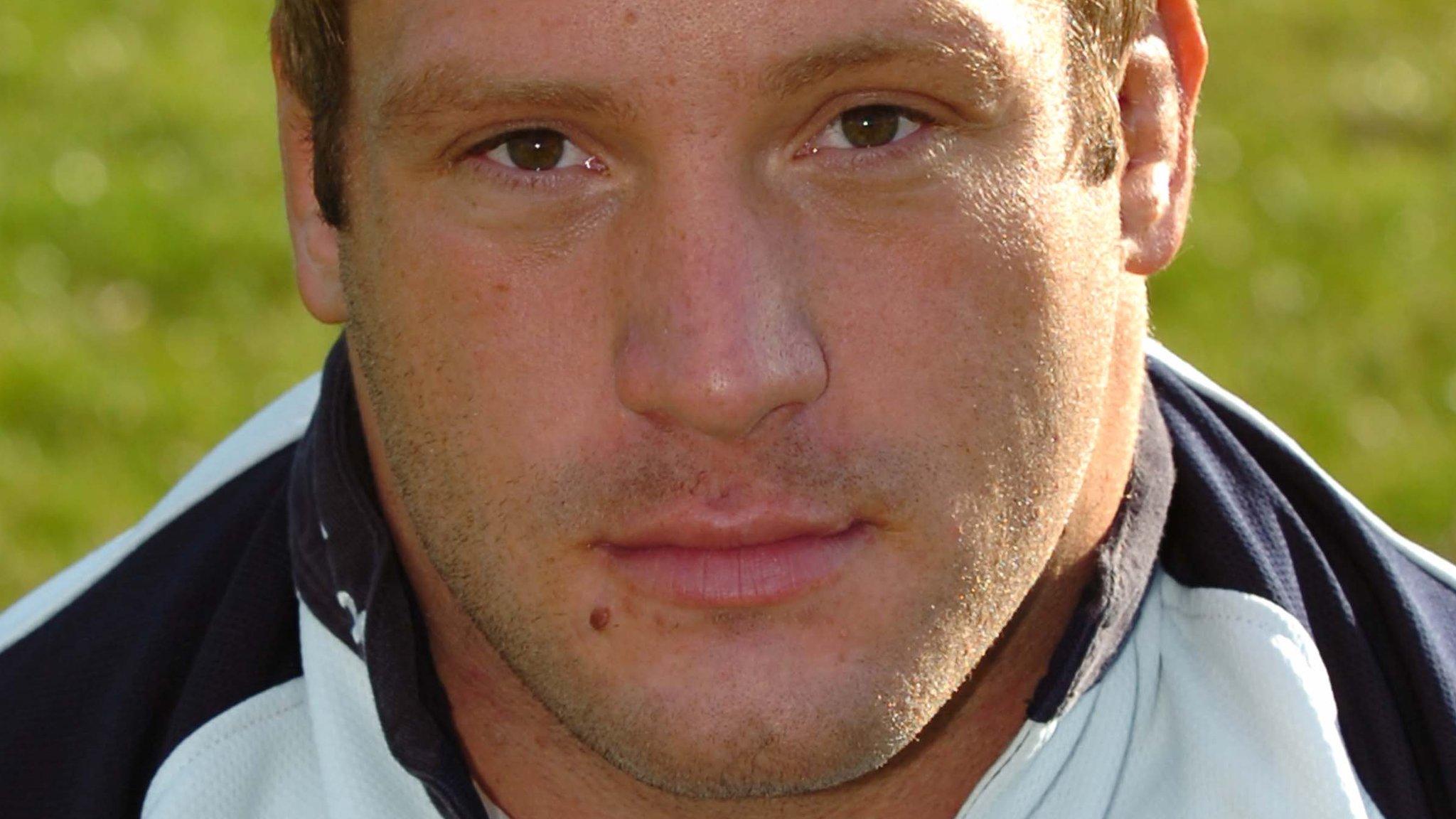Ex-Swansea RFC player sold steroids after trafficking ban
- Published
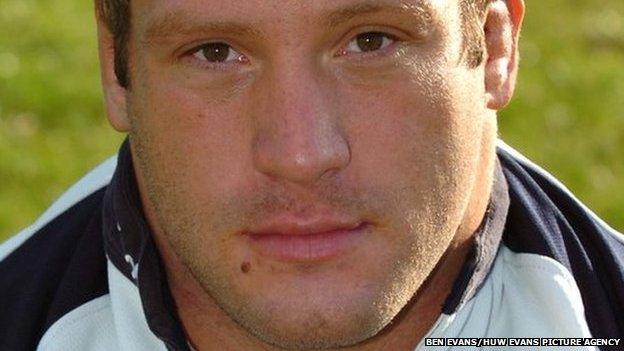
Dean Colclough was suspended from all sport for eight years
A former rugby player barred from sport for trafficking has continued to produce and supply anabolic steroids.
Ex-Swansea RFC hooker Dean Colclough was banned in 2014 by UK Anti-Doping.
But an investigation by BBC Wales' Week In Week Out found that he had been producing and supplying a product called M1T through his online business Dragon Nutrition.
Mr Colclough insisted he had not knowingly broken any laws and said he had now sold the business.
The anabolic steroids are illegal to produce or supply and were being sold as dietary supplements.
Week In Week Out investigated Dragon Nutrition as part of a wider programme examining the UK sports supplement industry that is now worth over £350m per year and has more than doubled in size over five years.
The programme purchased M1T, known as a prohormone, through a third party retailer recommended on Dragon Nutrition's website.
Prohormones have the same effects on the body as steroids and can have potentially dangerous side effects.
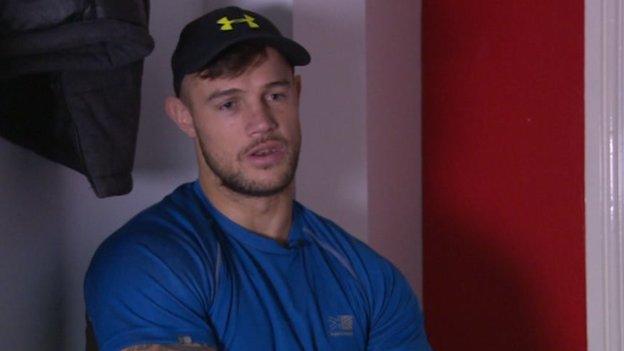
Tom Morgan said he suffered bad side effects after taking a prohormone supplement
Nick Wojeck from the UK Anti-doping agency said: "Basically, prohormones are the same as steroids so they will either have an effect on the body as soon as you ingest it or they will slightly be converted in the body and act as a steroid.
"So on the internet the use of these names are at all intents and purposes are all steroids."
The Home Office investigated M1T and concluded it was a Class C drug, illegal to produce or supply.
Samples of M1T were sent to the Drug Control Centre at King's College London for analysis.
Dr Chris Walker tested the substance and concluded that, based on its chemical structure, it would be controlled as a Class C drug under the Misuse of Drugs Act and Misuse of Drugs Regulations 2001 Schedule 4 Part 2.
Rugby player Tom Morgan once tried a prohormone supplement, not fully realising what it was.
"When I first took them I got strong gains off them at the start, when I came back from a major leg break injury it did help me get my muscle back quick but I also had a lot of side effects off them like bad kidney, spotty back and I got a bit aggressive which I didn't like so I stopped taking them," he said.
Sports supplements claim to help athletes improve their performance but are coming under increased scrutiny after several cases of failed drugs tests because of them.
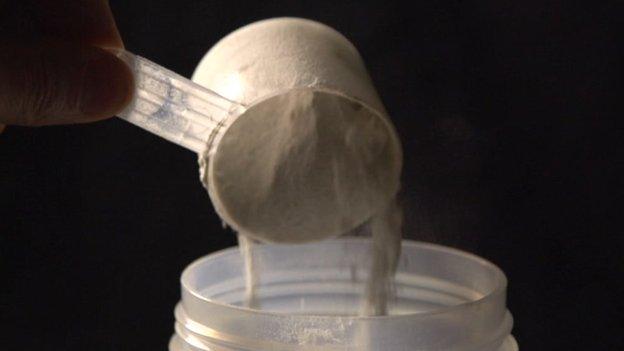
Some supplements can contain chemical ingredients not mentioned on the label
Welsh athletes Rhys Williams and Gareth Warburton were recently given four and six month bans.
They had both unknowingly taken a supplement contaminated with an anabolic steroid.
Former WBO world cruiserweight champion Enzo Maccarinelli said a failed drugs test and a six-month ban in 2012 due to a supplement was a huge blow to his career, as well as his reputation.
The boxer said he took a fat burning supplement which contained a banned substance, methylhexaneamine, that was not clearly labelled.
"I've always thought of myself as a straight cut guy never cut any corners and for me to then be labelled as a drugs cheat - it was the end of the world for me," he said.
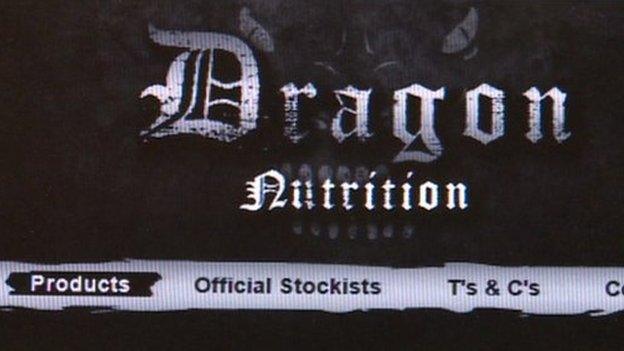
After Mr Colclough was contacted by the BBC, the Dragon Nutrition website was taken down
Sport supplement expert Ron Maughan from the University of Loughborough said it was not unusual for supplements to contain ingredients that were not labelled.
He said: "There's clear evidence that some otherwise ineffective products are being manipulated to include effective ingredients without those products being declared on the label."
Mathew Richardson, who manufactures high protein cookies from his factory in Blackwood, admitted there were products and companies who gave the industry a bad name, but insisted they were becoming fewer.
He said: "I don't think there's very many of them left now and the simplest thing to be sure of that is to go into a high street retailer or go online for the big brands and those people they put their test certificates online they get tested on that all the time."
Week in Week Out, BBC One Wales, 22:40 GMT, Tuesday 3 March.
- Published3 March 2015

- Published24 February 2014
